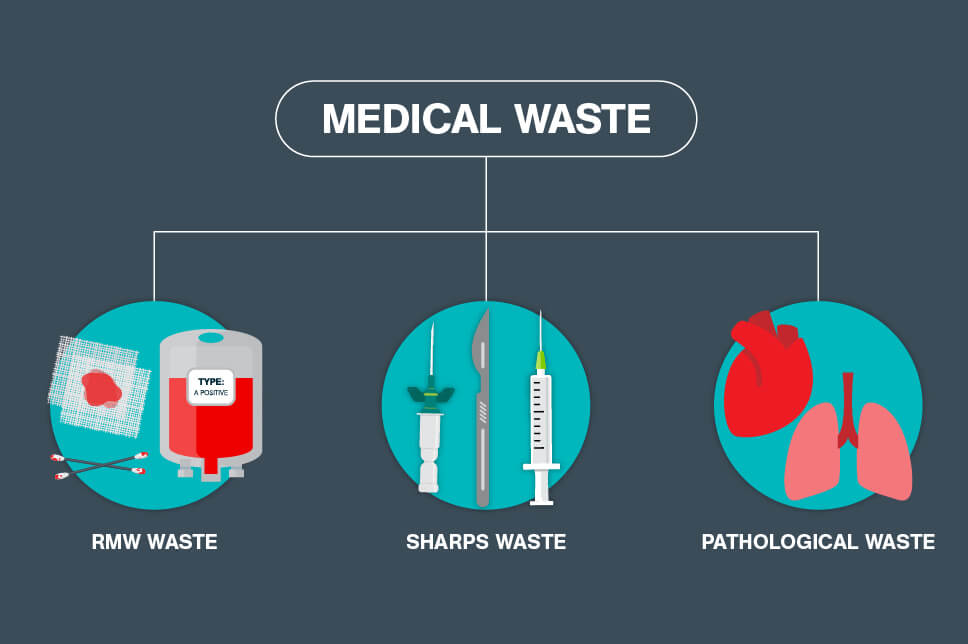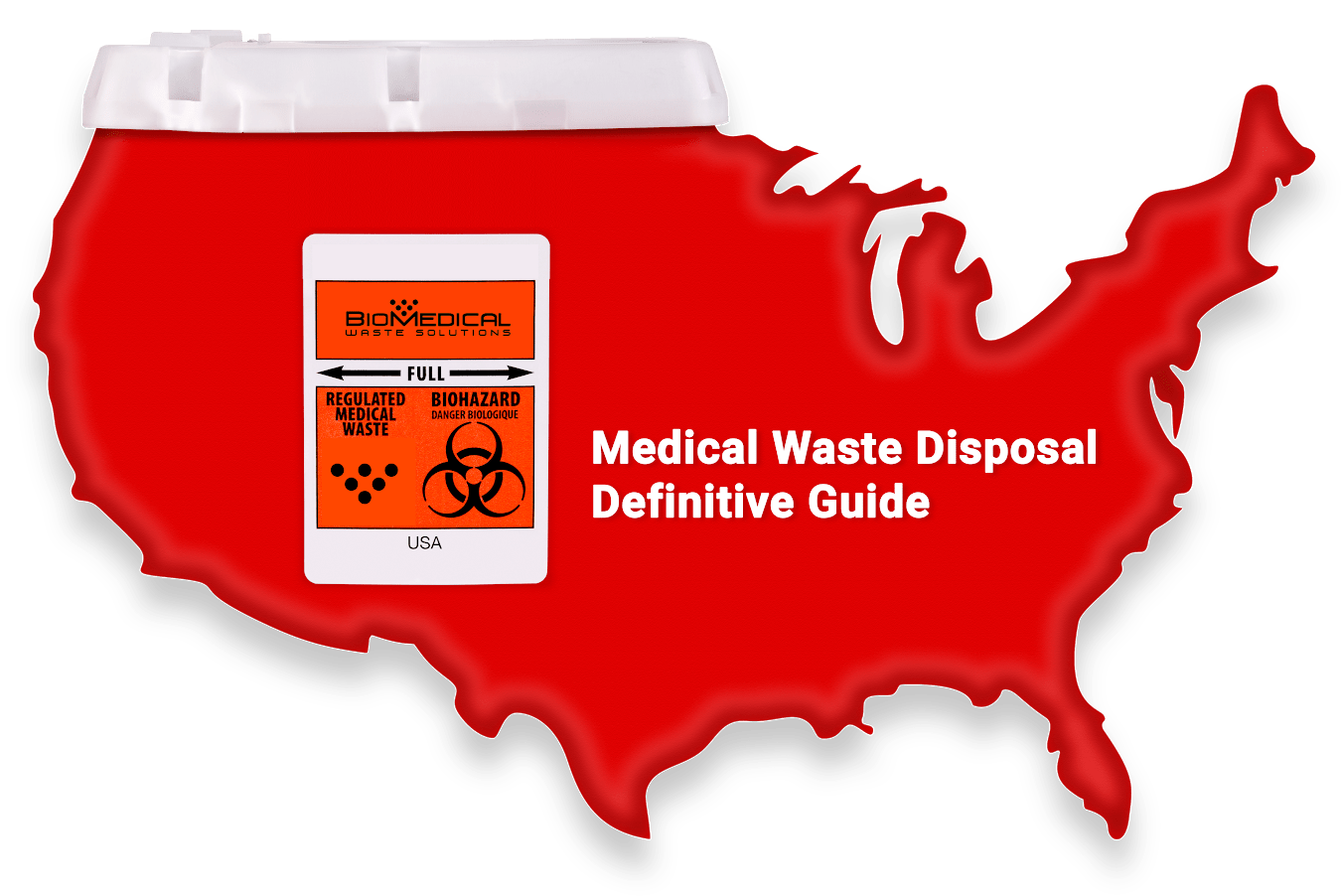Responsible Solutions: Understanding Medical Garbage Disposal Services
In the realm of healthcare, the correct disposal of clinical waste is a crucial element that requires cautious consideration. As medical care centers produce numerous types of waste that call for specific handling, understanding the nuances of medical waste disposal services is critical.
Importance of Appropriate Medical Waste Disposal
Appropriate medical waste disposal is essential in keeping a safe and hygienic environment within medical care facilities. In health care setups, numerous kinds of waste are produced daily, including infectious materials, sharps, ran out drugs, and chemical compounds.

Kinds Of Clinical Waste
Within medical care centers, a varied variety of waste materials classified as clinical waste is generated, each requiring particular handling and disposal techniques. Medical waste can be categorized into several kinds based upon its characteristics and potential threats. Infectious waste, such as made use of needles, societies, and swabs, postures a substantial threat of spreading infections and must be meticulously handled to avoid any type of potential damage. Contaminated materials includes chemicals, drugs, and certain products that might be reactive or toxic. These products call for customized disposal techniques to reduce ecological impact and ensure safety and security. Pathological waste, that includes cells, body organs, and body parts, necessitates appropriate disposal to value the dignity of the deceased and stop any biohazards. Finally, pharmaceutical waste, like expired medicines and chemotherapy medicines, need to be thrown away properly to avoid misuse or environmental contamination. Understanding the numerous kinds of clinical waste is critical for health care facilities to execute effective waste administration approaches and secure public wellness and the environment (Medical Waste Disposal Services).
Rules and Compliance
Health care facilities need to stick to rigorous guidelines relating to the handling and disposal of clinical waste to make certain conformity with lawful demands and secure public health. These regulations are established to avoid the spread of infections, safeguard the atmosphere, and maintain the safety and security of healthcare employees and the public. Different governing bodies, such as the Epa (EPA), the Occupational Safety And Security and Wellness Management (OSHA), and the Division of Transportation (DOT), have details guidelines that medical care facilities need to comply with.
To comply with these guidelines, health care facilities should correctly set apart, shop, transport, and take care of different kinds of medical waste. This includes sharps waste, transmittable waste, harmful waste, and pharmaceutical waste, each calling for particular dealing with treatments. Facilities should also maintain precise records of waste generation and disposal to show compliance throughout examinations.
Non-compliance with clinical waste policies can cause extreme fines, penalties, read and damage to the center's reputation. It is essential for healthcare centers to stay educated about the latest guidelines and implement robust compliance measures to secure public health and wellness and the environment.
Advantages of Professional Disposal Services
Involving specialist clinical waste disposal solutions supplies health care facilities a trusted and reliable option for taking care of unsafe materials. By outsourcing this vital job to experts, healthcare facilities can guarantee conformity with laws while concentrating on giving quality like people. One of the essential benefits of professional disposal solutions is the expertise they give the table. These solutions employ qualified specialists that are skilled in managing different sorts of clinical waste, guaranteeing proper segregation, transport, disposal, and product packaging.
Additionally, specialist disposal solutions make use of advanced tools and follow sector finest methods to lessen environmental effect and decrease the threat of contamination. This not only promotes a safer workplace for medical care team yet additionally contributes to general public health and security. In addition, contracting out clinical garbage disposal can lead to cost financial savings over time by removing the requirement for in-house management and disposal systems.
Lasting Practices in Medical Care

One secret sustainable method in healthcare is waste decrease. By applying methods to minimize unnecessary product her latest blog packaging, single-use items, and total waste generation, healthcare facilities can substantially decrease the amount of waste sent to landfills or incineration. Furthermore, reusing programs for products like paper, plastic, and glass can even more minimize the environmental influence of healthcare procedures.

Conclusion
In verdict, appropriate clinical waste disposal is critical in preserving a safe and healthy and balanced atmosphere for both healthcare workers and the public. Recognizing the different sorts of medical waste, complying with guidelines and conformity standards, and using expert disposal services are crucial actions in liable waste monitoring. By embracing lasting techniques in health care facilities, we can reduce environmental influence and make certain the well-being of all people entailed in the health care sector.
As healthcare centers generate numerous kinds of waste that require specific handling, understanding the nuances of medical waste disposal services is critical.Within healthcare facilities, a diverse range of waste products categorized as clinical waste is generated, each needing particular handling and disposal techniques. Understanding the different types of medical waste is crucial for healthcare centers to carry out efficient waste monitoring methods and protect public health and wellness and the setting.
By implementing methods to reduce unnecessary packaging, single-use items, and overall waste generation, healthcare centers can substantially decrease the quantity of waste sent out to garbage dumps or incineration. Comprehending the different types of medical waste, following guidelines and conformity standards, and using expert disposal services are essential steps in accountable waste management.